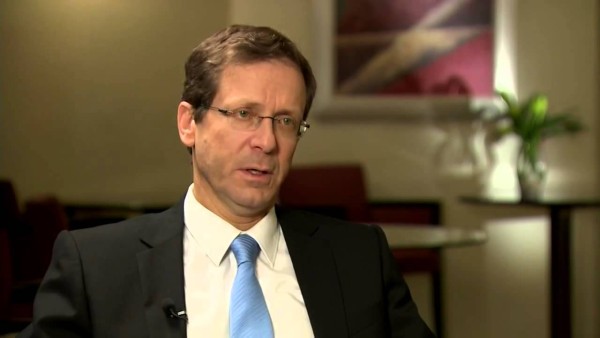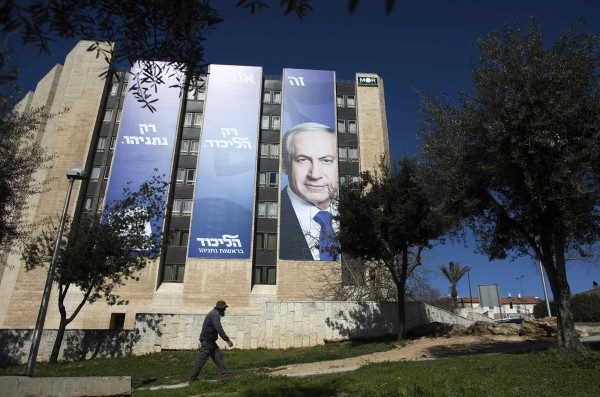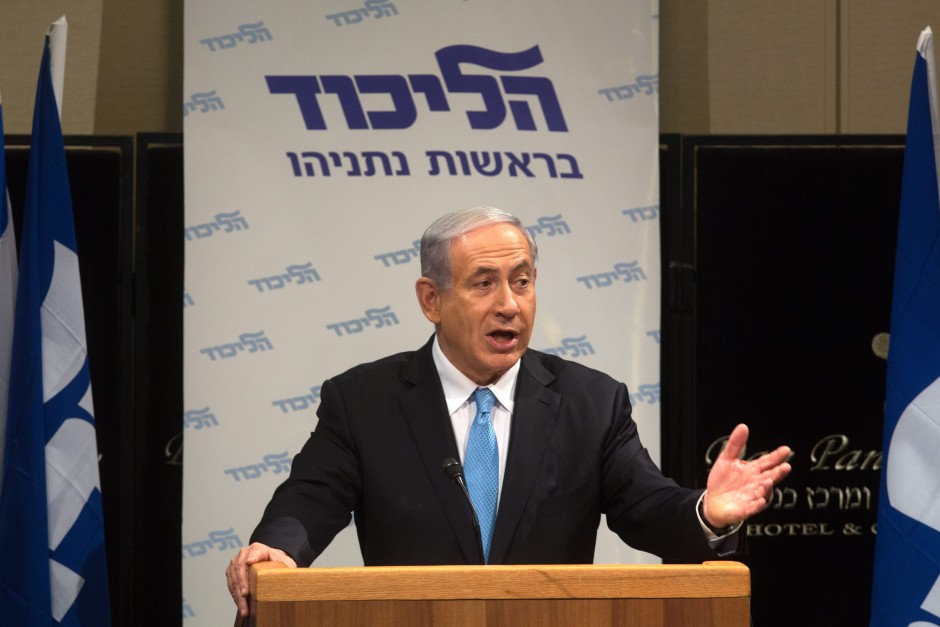
He’s clawed his way back to power, and that’s bad news for Israel.
Benjamin Netanyahu, having scored a decisive come-from-behind victory over Isaac Herzog in the March 17 general election, is poised to surpass David Ben-Gurion as Israel’s longest-reigning prime minister.
Netanyahu is no doubt chortling, having upended pundits’ predictions that he would go down to defeat, as he did in the 1999 election after three years in office.
Netanyahu’s Likud Party won 30 seats — 12 more than in the 2013 election and about six more than pollsters thought he would garner this time around. Herzog’s Labor Party, which was expected to outshine the Likud, fell short, winning only 24 seats.

While happy days are here again in Likud headquarters, Netanyahu’s electoral triumph augurs badly for Israel’s future as a democratic Jewish state.
If observers are correct, Netanyahu will eventually cobble together a right-wing coalition government with Naftali Bennett’s pro-settlement Jewish Home Party, Moshe Kahlon’s center-right Kulanu Party, Avigdor Liberman’s Russian-based Yisrael Beiteinu Party, Aryeh Deri’s Shas Party and Yaakov Litzman’s United Torah Judaism Party.
Netanyahu will command a total of 67 seats in the 120-seat Knesset, a comfortable enough margin to embolden him to consolidate Israel’s grip on the West Bank, which is widely seen as an integral component of a future Palestinian state.
Netanyahu’s determination to keep the West Bank at all costs may prove to be Israel’s undoing, as the clear-eyed former director of the Mossad, Meir Dagan, warned recently. “The reality being championed by Netanyahu and … Bennett will result in a binational state,” he declared on March 5. “I think that’s a catastrophe.”
Dagan darkly added that the short-sighted, self-destructive policies pursued by Netanyahu and company will “end the Zionist dream.”
I fully agree with Dagan’s analysis.
Long before this election, Israel had reached a momentous crossroads.
If Israel continues with its dangerous settlement project in the West Bank, the two-state solution will wither on the vine, creating the conditions for endless conflict with the Palestinians and the Arab world and for further tensions with the United States and the European Union.

But if Israel finally comes to its senses and tries to work out a reasonable political accommodation with the Palestinian Authority on the basis of the pre-1967 armistice lines and mutual land swaps, Israel will have embarked on the path of guaranteeing its existence as a Jewish state with defined and internationally recognized borders.
This is an Israel that would be at peace with a major segment of the Palestinians, would be safer and would be far less politically isolated than it is at the present. It would be an Israel that could flourish and fulfill its tremendous potential as a modern, progressive Western state.
Regrettably, Netanyahu has opted for a myopic, intransigent, self-defeating hard-line policy that brings a binational solution to the Arab-Israeli dispute ever closer.
Worried that he was on the cusp of being defeated after two successive terms since 2009, Netanyahu lurched to the far right in the final days of this often shrill and ugly election campaign. In what turned out to be a cynical and successful ploy to siphon votes away from the Jewish Home Party and Yisrael Beiteinu, he committed himself to a series of ill-fated promises that may yet haunt and hurt Israel.
Netanyahu, who never paid more than mere lip service to a two-state solution, the only game in town, pledged to accelerate construction in Har Homa, a neighbourhood in East Jerusalem that Israel started building in 1997 under his watch. He also said there would be “no withdrawals” from the West Bank and “no concessions” made to the Palestinians.

But in his biggest and most significant shift, Netanyahu said he would no longer abide by his 2009 speech at Bar-Ilan University in which he expressed support for the establishment of a “demilitarized Palestinian state” coexisting “with the Jewish state.”
Describing himself as “the last line of defence” against international pressure on Israel to pull back to the pre-1967 lines, he said, “I think that anyone who moves to establish a Palestinian state today, and evacuate areas, is giving radical Islam an area from which to attack … Israel.”
The opposite is true.
Islamic radicalism is a major threat, to be sure, but it feeds, in part, on Palestinian grievances and their sense of victimhood. And it will surely grow if Israel and the Palestinians fail to settle their conflict by peaceful means.
If Israel denies the Palestinians statehood and persists with the status quo in the West Bank, Israel will be dooming itself. The day will surely come, sooner rather than later, when, as demographic projections suggest, the Palestinians in the West Bank, the Gaza Strip and Israel itself will outnumber Jews in the territory stretching from the Jordan River to the Mediterranean Sea and demand their legitimate political rights.
If Israel refuses, it will consign itself to the noxious ranks of undemocratic states underpinned by apartheid principles. If it accedes to Palestinian demands, Israel will gradually morph into a binational state, with all its intended and unintended consequences.

What Israeli wishes to be faced with such an agonizing, even existential, choice? Israel can avoid this inevitable scenario if it plays its cards right and does the math.
Lest it be forgotten, a Palestinian state within the boundaries of the West Bank and the Gaza Strip would account for only 22 percent of Palestine as it was territorially constituted in 1947, the year the United Nations voted for partition. Israel would be left with 78 percent of what was Palestine.
The Palestinian Authority under the moderate leadership of Mahmoud Abbas appears ready to accept this historical compromise. Hamas still rejects the notion of partition, as does Netanyahu. In Netanyahu, the Palestinian Authority has no sincere, serious and reliable Israeli negotiating partner.
It’s bitterly sad and ironic that Netanyahu clings, more or less, to the same rejectionist illusion as Hamas.
